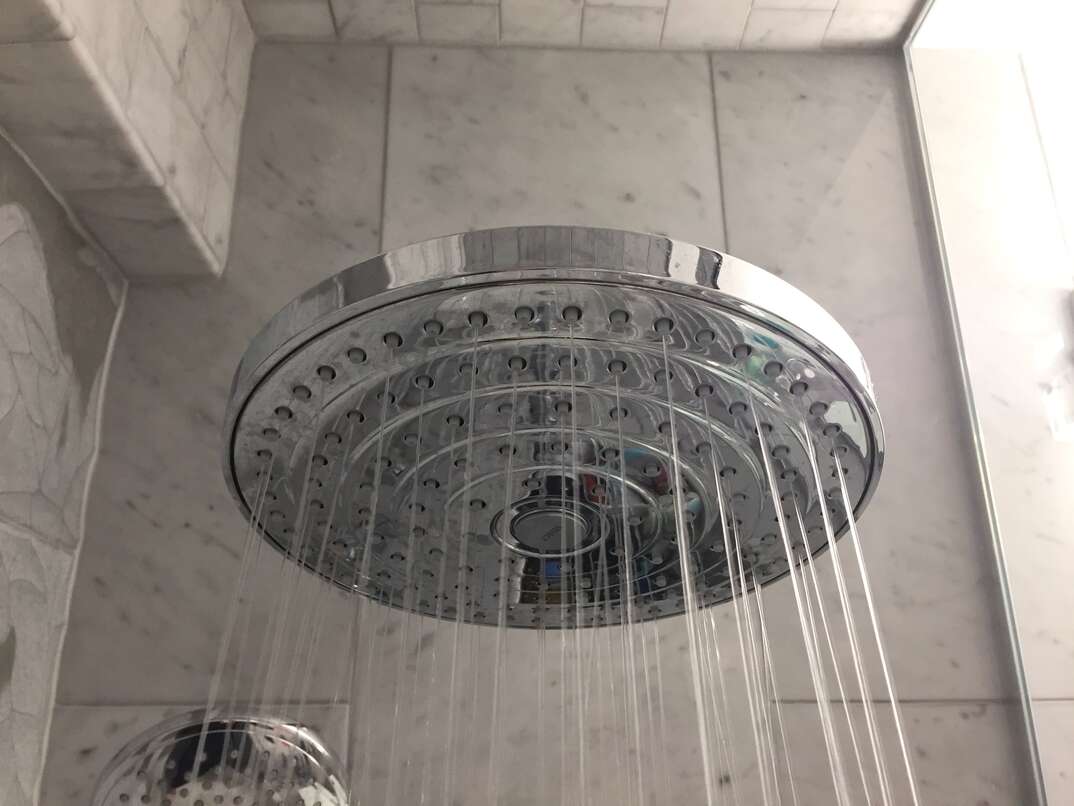- AppliancesElectriciansHVACLandscapingLocksmithPest ControlPlumbingRenovationRoofingT V RepairAll Home Improvement
- Car AccidentClass ActionCorporate LawCriminal DefenseDivorce LawEmployment LawFamily LawFinancial LawLegal AidMedical Injury LawyersMedical MalpracticeReal Estate LawWater Fire RestorationAll Legal
- InvestmentRetirementAll Finance
- Animal InsuranceAutoGeneral InsuranceHealth PolicyHome RentersAll Insurance
- DentalHealth SpecialistsAll Medical
- Animal CareVeterinaryAll Pets
- Auto GlassTowingAll Automotive
What Is Hard Water?

Hard water? Isn’t that just … ice?
Jokes aside, if your glasses have cloudy spots on them when they come out of the dishwasher or your hands still feel slimy after washing, it’s likely your water is hard. Basically, that means there are more minerals in the water.
Water hardness is based on the amount of dissolved minerals it contains. The more dissolved minerals, the harder the water. There are a number of ways to measure water hardness. In the United States, you’re most likely to see it measured using grains per gallon (gpg). A grain is equal to 0.002 ounces of the mineral. In other countries and in scientific circles, milligrams per liter (mg/L) is the preferred measurement. Below is a scale of hard water showing gpg measurements from the U.S. Department of Energy and mg/L measures from the U.S. Geological Survey (USGS).
- Soft: 0-3gpg or 0-60 mg/L
- Moderate: 3.5-7gpg or 61-120 mg/L
- Hard: more than 7.5gpg or 121-180 mg/L
- Very hard: more than 181 mg/L (the Department of Energy doesn't have a "very hard" measurement)
What Minerals Are Present in Hard Water?
Calcium and magnesium are the minerals measured when looking at water hardness; however, trace amounts of other minerals can also be found, including iron, zinc and manganese.
More Related Articles:
- Calling a Plumber? Here Are the 6 Most Common Plumbing Jobs and How Much They Cost
- 6 Ways to Try to Unclog Your Sink Before You Call a Plumber
- What's in My Plumber's Van?
- Here's How Much It Costs to Remodel a Bathroom
- 6 Tips for Hiring a Plumber
Why Is Hard Water a Problem?
The first thing to understand is that hard water doesn’t pose a health risk. In fact, studies have suggested that the minerals found in hard water can protect people from cancer, blood clots, heart disease and other health conditions. However, hard water doesn’t always bring benefits to human bodies; high mineral levels can cause dry skin or hair after showering and may even be a risk factor in eczema.
Although there’s no connection between hard water and serious disease, that doesn’t mean it isn’t a problem. When the water evaporates, the minerals are left behind on surfaces. Some issues this can cause include:
- Unsightly stains
- Plumbing problems such as leaks and clogged pipes
- Lower efficiency of equipment that uses water, such as water heaters and dishwashers
- Higher costs in running equipment
- Shortened life of equipment
- Shortened life of clothes and fabrics
Hard water can be found throughout most of the country, but mineral levels are highest in places that use groundwater. A map from the USGS shows that water is harder in the interior of the country rather than along the coast. Although the map is from 1975, the department states that the information is still accurate. States with very hard water include Texas, Oklahoma, Colorado and Wyoming.
What Are the Solutions for Homes With Hard Water?
If you think you have hard water, the first step is to confirm your suspicions. Your local water utility may have a report available detailing what’s in the water. If not, there are water test kits available online or at hardware stores that can tell you how hard your water is.
A water softener is the best solution for hard water. This is a system that filters your whole house using ion exchange. In most softeners, water flows through beads charged with sodium ions. In the simplest terms, the sodium is exchanged for the minerals that make water hard, leaving soft water to flow through your pipes.
Elocal Editorial Content is for educational and entertainment purposes only. Editorial Content should not be used as a substitute for advice from a licensed professional in your state reviewing your issue. Systems, equipment, issues and circumstances vary. Follow the manufacturer's safety precautions. The opinions, beliefs and viewpoints expressed by the eLocal Editorial Team and other third-party content providers do not necessarily reflect the opinions, beliefs and viewpoints of eLocal or its affiliate companies. Use of the Blog is subject to the
Website Terms and Conditions.The eLocal Editorial Team operates independently of eLocal USA's marketing and sales decisions.



